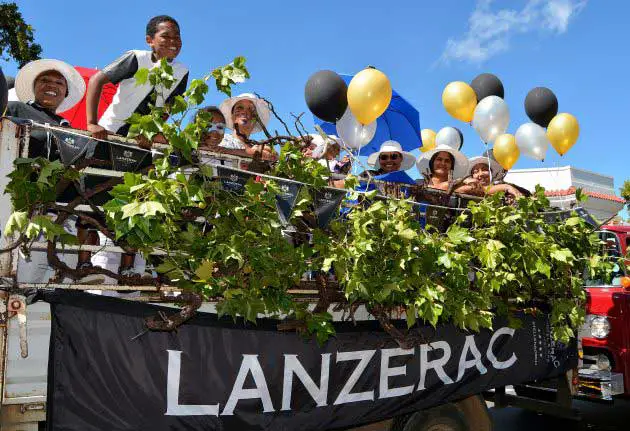ASATA & SATSA Denounces Unabridged Birth Certificate Regs
UPDATE: JOHANNESBURG, 11 November 2019 – International minors travelling to South Africa do not require Unabridged Birth Certificates or consent letters when travelling with their parents.
ORIGINAL ARTICLE: JOHANNESBURG, 25 September 2018 – Both the Association of Southern African Travel Agents (ASATA) and the Southern Africa Tourism Services Association (SATSA) are disappointed and frustrated that South African minors will still be required to present Unabridged Birth Certificates when travelling.
The announcement was made by Home Affairs Minister Malusi Gigaba this morning during a press conference following last week’s Stimulus Package announcement by President Cyril Ramaphosa on visa regulations which focussed solely on the international market.
The President said: “Within the next few months, amendments will be made to the regulations on the travel of minors; the list of countries requiring visas for South Africa will be reviewed and an e-visa pilot will be implemented. These measures have a huge potential to boost tourism and to make business travel into our country more conducive. Tourism continues to be a great job creator. Through these measures, we are confident that many more tourists will visit South Africa and South Africa opens its arms to welcome the millions of tourists who will be streaming our way following this architectural reconstruction.”
Minister Gigaba this morning confirmed that South African minors will still be required to prove parental consent as required by the Children’s Act. This consent, he confirmed, is the presentation of the Unabridged Birth Certificate in the absence of the new passport which includes both parent’s names.
ASATA CEO Otto De Vries has slammed the announcement, saying if South Africa wants to stimulate the economy, UBC requirements need to be scrapped for all travellers, including South Africans.
“The controversial requirement for travelling families has stifled outbound tourism, as it is making it difficult for local families to travel internationally. Why would you continue to apply a policy that will hamper and frustrate them?”
De Vries urges the government to apply the new policy consistently and across the board. He says: “Only applying the policy for international travellers would have no relevancy and create inconsistency. The stringent requirements were implemented to combat child trafficking. If the government only removes the requirement for international travellers, are they suggesting that only South African passport holders are guilty of child trafficking?”
“Not extending the amendments to the rules across the board would also become a logistical nightmare, as foreign airlines would need to continue to monitor each traveller to identify South Africans and only apply the stringent regulations to them.”
Although the South African government has announced it will ‘soon’ roll out a new child passport which will include the parents’ details and replace the UBC requirement, this is not an adequate solution, says De Vries. “In our modern South African society, there are many different types of families with single-parent families no longer a rare exception. As it stands, both parents will be required to be present when applying for a child’s passport. This is not realistic.”
Furthermore, the UBC requirement has a negative impact on South Africa’s substantial VFR (Visiting Friends and Relatives) inbound tourist arrivals. “South African living abroad are equally frustrated by this onerous regulation, which requires them to acquire UBCs or go through the passport application process for their children. In terms of market share, inbound VFR traffic to South Africa accounted for as much as 3.3 million arrivals in 2016/2017.”
Although the South African government has previously suggested that the International Civil Aviation Organization (ICAO) could adopt South Africa’s proposal to include parents’ names in a child passport as best practice, De Vries explains this is naïve. He refers to India where the government trialled this practice but announced in January it was abandoning it.
De Vries sums up: “South Africa’s government needs to remove the requirement for travel with a UBC for all passport holders.”
SATSA’s Opinion
Commenting on this latest development, the Southern Africa Tourism Services Association (SATSA) CEO David Frost said: “Following the President’s announcement, we had expected full clarity to be provided jointly by the Ministries of Tourism and Home Affairs on how the regulations would be amended to give effect to the President’s proposed changes to immigration and visa regulations to help stimulate the economy. Instead, Home Affairs issued an obfuscated message that serves only to confuse travellers, much in the way it did when the regulation was first introduced three years ago.”
“Issuing an international travel advisory only in October, after today’s vague statements that a UBC may be requested by immigration officials, simply reintroduces the confusion we fought many years to dispel, and undermines President Ramaphosa’s attempts to make it easier for foreign travellers to visit South Africa. Our position from the start has been that this draconian, heavy-handed and nonsensical policy to combat child trafficking has no place in the modern economy. Rather, it should be dealt with through proper policing. Semantic changes to the regulation are not the solution,” says Frost.
“We believe the requirement to produce Unabridged Birth Certificates must be eliminated immediately across the board to ensure South Africa’s competitiveness as a tourism destination and remove any confusion around the requirements for foreign minors travelling to South Africa.
“We do, however, welcome moves by the Ministry of Home Affairs to introduce visa waivers for certain source markets. “We would have liked to have seen an immediate visa waiver for visitors from the Middle East, and New Zealand, a source market which has seen a decline of 30% in arrivals since visas were introduced.
“What South Africa’s tourism sector needs, while this process remains open-ended, is immediate action. “Our key markets of India and China remain constrained because of the inability of Home Affairs to issue visas timeously. We need the urgent implementation of measures to improve visa requirements for these markets so that President Ramaphosa’s vision of tourism contributing to the growth of South Africa’s economy can become a reality now, not later.
“South Africa’s restrictive immigration laws have greatly hampered the country’s attractiveness as a tourism destination, and subsequently impacted the number of tourists who choose to visit South Africa. It creates a barrier to entry with financial and/or opportunity cost that a prospective tourist needs to overcome in order to travel to South Africa.
“Making announcements regarding changes to immigration regulations, without providing proper clarity, is frankly too little too late,” concludes Frost.
About ASATA: Established in 1956, the Association of Southern African Travel Agents is a representative forum registered as an Association of Persons, that promotes professional service in the travel industry for both members and their clients. Representing over 95% of the travel industry in terms of market share, ASATA’s membership is voluntary and includes South African retail travel agents, travel management companies, wholesalers and suppliers of travel-related products and services. For more information, visit www.asata.co.za.





